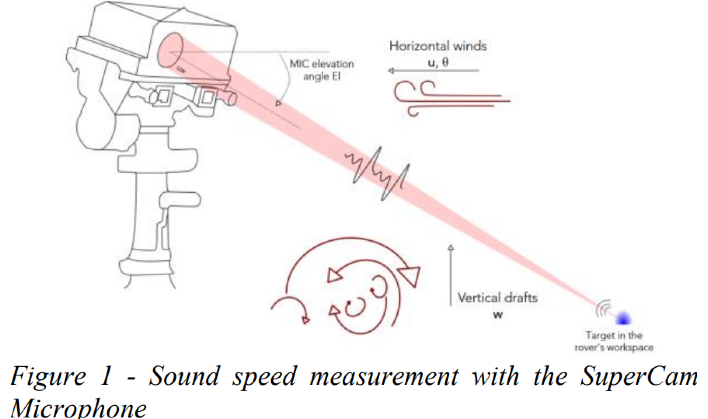NASA's Mars Rover Records Its First Audio Clip On Mars And It's Kind Of Freaky
Mars is typically an eerily quiet planet, with an occasional gust of wind, according to recordings from Perseverance since its landing. Scientists published a study last Friday in the Nature journal, giving their first analysis of five hours of sound recorded on the red planet. The findings confirmed the speed of sound on Mars, which turns out to be very different than here on Earth.
Sound travels at about 1,125 feet (343 meters) per second in Earth's atmosphere. However, on Mars sound seems to move slower at 787 feet (240 meters) per second. This was expected, because Mars' atmosphere is 95% carbon dioxide, compared to on Earth where it is 0.04%. That makes the atmosphere of Mars about 100 times thinner, while making decibels weaker, according to the study.
During the last year, the international team has listened to flights by the Ingenuity helicopter. As the helicopter flew around, it would pause to zap rocks with a laser in order to study the rocks chemical composition. The laser would make a "clack clack" sound each time it zapped a rock.
"We had a very localized sound source, between two and five meters (six to 16 meters) from its target, and we knew exactly when it was going to fire," stated Sylvestre Maurice, the study's main author and Co-director of the SuperCam which houses the main microphone located on the rover's mast.

"I panicked a little," Maurice said. "I told myself that one of the two measurements was wrong because on Earth you only have one speed of sound."
But the calculations were correct, and scientists discovered that there are actually two speeds of sound on Mars, one for high-pitched sounds, and another for lower frequencies like the sound of the helicopter's spinning rotor blades. This implies that our human ears would hear high-pitched sounds a bit earlier on the red planet.
"On Earth, the sounds from an orchestra reach you at the same speed, whether they are low or high. But imagine on Mars, if you are a little far from the stage, there will be a big delay," Maurice explained.
Oddly, if two people were to try and have a conversation only five meters apart on the surface of Mars, it would prove difficult due to all these factors, according to French CNRS research institute.
The microphones on the rover has picked up various other sounds, such as the sounds of the rover's metal wheels interacting on the rocks. And being the Mars rover still has more time during its core mission to pick up new sounds, we may yet hear more noises from Mars to give greater insight about the red planet before NASA's projected date of 2040 of placing boots on its surface.


